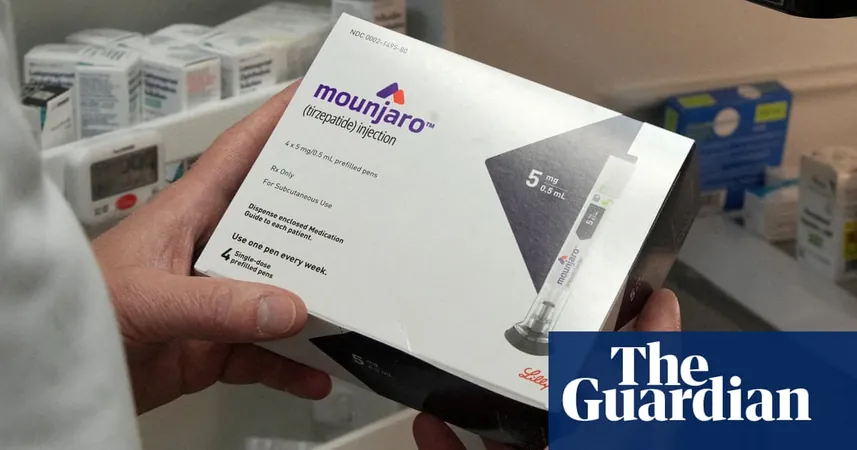
Breakthrough Video Game-Based Tests Could Revolutionize Alzheimer's Detection - Is This the Future of Dementia Screening?
2025-04-04
Author: Mei
Researchers from Rutgers-Newark University have unveiled a groundbreaking new method for the early detection of Alzheimer's disease that utilizes video games, a significant advancement in the noninvasive screening of dementia. This innovative approach has the potential to identify Alzheimer's years before clinical symptoms arise, offering a painless alternative to traditional blood tests that analyze biomarkers.
The video game tests developed by the Aging & Brain Health Alliance have shown comparable results to newer blood tests now widely available, all while eliminating the need for blood samples or trained personnel to administer them. According to the researchers, this method not only reduces the burden on medical systems but could also cut costs for healthcare providers.
This recent study, published in the journal Alzheimer's Research & Therapy, is especially promising for pharmaceutical researchers. It opens the door to early participant selection for drug trials targeting Alzheimer's, potentially accelerating the research timeline significantly. Traditionally, researchers have had to wait for conventional diagnoses, often after irreversible changes have begun in the brain, which can happen 10 to 15 years before any cognitive impairment is apparent.
Miray Budak, the lead author from the Center for Molecular & Behavioral Neuroscience, expresses enthusiasm over this development: “We've now validated an early warning sign, allowing us to detect issues before cognitive problems become apparent.”
Over two decades, the Alliance has fine-tuned this computerized video-game screening to gauge brain function well before symptoms manifest, with renewed evidence affirming its effectiveness emerging from this study. A vision shared by neuroscientist Mark Gluck, the lab's director, includes the possibility of clinicians administering these tests from standard laptops in offices or even remotely from patients’ homes.
The core of the test is a generalization task that assesses cognitive ability by challenging participants to understand and apply rules related to colors and shapes. Additionally, Gluck's team has devised an MRI method to assess brain flexibility, which is crucial for communication among neurons in the hippocampus—a region critically affected in early Alzheimer's cases.
In this particular study, 148 African American participants—who are statistically more likely to develop Alzheimer's yet are underrepresented in national aging research—underwent a suite of cognitive assessments alongside blood tests and MRI evaluations. Everyone involved was cognitively unimpaired, ensuring a focus on early detection rather than intervention.
While traditional cognitive tests, such as drawing a clock or word recall, are well-known but fail to catch early indicators effectively, the Rutgers tests simplify the requirements to basic skills in shape and color recognition. This universal applicability makes these new tests more accurate and inclusive, sidestepping issues related to education and cultural knowledge that can skew results.
Given that current medical approaches offer no chance of reversing Alzheimer's damage, the focus is shifting to early intervention strategies. This study underlines the importance of understanding Alzheimer's risk, especially among older adults who may be dismissive of their vulnerability, as noted by co-author Bernadette A. Fausto.
“People often think that if they haven't shown symptoms by age 60, they are in the clear. Once they recognize their risk through testing, it may motivate them to take better care of their brain health,” she stated.
With these exciting developments, the potential for video game technology to transform Alzheimer's screening is immense. Are we on the brink of a new era in dementia diagnostics? Only time will tell!




 Brasil (PT)
Brasil (PT)
 Canada (EN)
Canada (EN)
 Chile (ES)
Chile (ES)
 Česko (CS)
Česko (CS)
 대한민국 (KO)
대한민국 (KO)
 España (ES)
España (ES)
 France (FR)
France (FR)
 Hong Kong (EN)
Hong Kong (EN)
 Italia (IT)
Italia (IT)
 日本 (JA)
日本 (JA)
 Magyarország (HU)
Magyarország (HU)
 Norge (NO)
Norge (NO)
 Polska (PL)
Polska (PL)
 Schweiz (DE)
Schweiz (DE)
 Singapore (EN)
Singapore (EN)
 Sverige (SV)
Sverige (SV)
 Suomi (FI)
Suomi (FI)
 Türkiye (TR)
Türkiye (TR)
 الإمارات العربية المتحدة (AR)
الإمارات العربية المتحدة (AR)